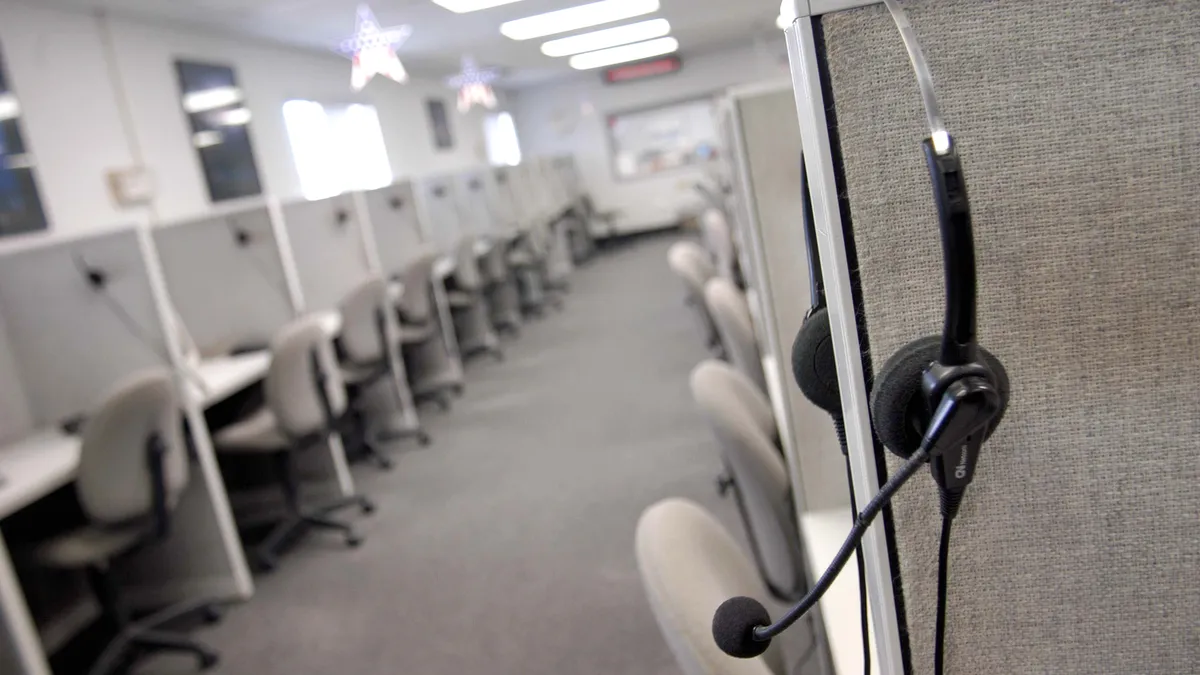While Sharra Owens-Schwartz acknowledges the business case for diversity, Rocket Software’s global diversity lead told HR Dive that employers must prepare their organizations for increased diversity, regardless. “It's not an exercise of ticking the box, or that we're automatically going to outperform other companies because we’ve become more diverse,” she said.
Employers should reassess their practices and policies to see if they’re equitable, because diversity, equity and inclusion are intertwined, Owens-Schwartz said, a diverse pool of candidates will be attracted to an equitable company. She said that kind of equitable environment will foster greater inclusion as well.
Prior to Owens-Schwartz’s appointment as DEI lead, Rocket “had not really paid attention to DEI.” Now, as the global lead of Rocket’s Inclusion, Diversity and Equity initiative (RIDE), her goal is to “build an environment where everyone can show up at work as their full selves, and really be able to thrive.” Rocketeers, as they’re called, exist in hubs or “communities” across Europe, Australia, Asia and South America. The RIDE lead shared more insights on how to create the kind of global work community that retains and empowers its employees.
This interview was conducted via email, and has been edited for clarity and brevity.
HR DIVE: What were some equity measures that you're proud of having taken at your company?
SHARRA OWENS-SCHWARTZ: I came on board as the first ever person to lead these initiatives and to take a closer look at where our organization stood. I did a listening tour so I could really understand the state of DEI and what people needed in order to thrive. And so, particularly over the last year, we've been doing some rigorous work around pay equity — looking at different levels of the organization, across genders.
One of the huge things that we were recently able to announce was our family leave policy. Employees across the world now have 24 weeks of paid leave for family members who are caring for a child. There's also a very generous paid leave for the parent or caregiver who is not the primary.
Traditionally it has been “parental” or “maternal” leave, but we really have set the field by introducing it as family leave — effective of whatever your participation, whether you deliver or adopt, or however you form your family.
In the past year of covering HR, I have noticed such a groundswell of employers looking at paid family leave more and looking at it as a real benefit as a part of an employees’ total rewards. Because Rocket is a global company, what similarities and differences have you found in employees' DEI interests and goals?
We find that some things are applicable across the globe — things like disparities among genders in particular, and challenges around gender roles and stereotypes. Issues look different across geographical spaces. In the U.S., when we talk about racial challenges, we talk about [disparities among] Black folks, Latinx or Latine folks, Asian folks, Native American folks. If you go to India, there hasn't been much discussion around the caste system and the role it plays in employment, in my experience. At Rocket, I continue to dig deeper and have deeper conversations. But it definitely is something that's not talked about as much and we really want to sort of dismantle those biases.
Obviously, disparity and oppression are things employers would want to fight, across the board. It's really fascinating to think about how oppression has different faces in each region of the world.
Have you seen that your employees in Europe are concerned about the Russian-Ukrainian war and how it's going to affect them?
Our European Rocketeers in particular have been nervous about how the conflict is going to impact them. They have their own fears around the war spreading beyond boundaries. We supported our employees in Ukraine as much as possible — we also had people in neighboring Lithuania. Right at the point of attacks, we were helping as much as we were able.
We put measures in place to help support our employees’ well-being. We partnered with an organization that helps to provide mental health assistance — things like circles, led by professional therapists and psychologists, where you can gather and talk about external stressors.
I imagine that was scary. It's important that, at the very least, people can find a resource in their place of work. Lastly, what are your tips for HR pros who want to keep employees engaged in an inclusive way, due to a hybrid work setting?
The first thing that needs to be in place — what I call the secret sauce to dynamic and engaged teams — is psychological safety. If you are creating psychological safety on your teams, then your employees will be fully engaged.
Your employees will find ways to innovate — find ways to just perform — if they know that. They can take good faith risks, ask questions, challenge assumptions, and know that they will not be humiliated or shamed. They can share wild ideas and know that they are safe in that space.





















